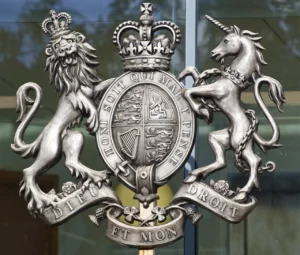The Rise of LabHost
LabHost quickly gained notoriety within the criminal underworld. By early 2024, it had spawned over 40,000 fraudulent websites and boasted more than 2,000 registered users. Operating on the dark web, LabHost provided a one-stop shop for aspiring fraudsters, allowing them to mimic trusted brands such as banks, healthcare agencies, and postal services. Victims would unwittingly visit these fake sites, believing they were interacting with legitimate services.

The Worldwide Crackdown
The operation to dismantle LabHost was a collaborative effort involving law enforcement agencies across the globe. Here are the key players:
- Metropolitan Police: Leading the charge, the Met initiated the investigation after receiving crucial intelligence from the Cyber Defence Alliance.
- National Crime Agency (NCA): The NCA joined forces with the Met’s Cyber Crime Unit to tackle the growing threat posed by LabHost.
- City of London Police: Working in tandem with other agencies, the City of London Police played a crucial role in tracking down suspects.
- Europol: The European law enforcement agency provided vital coordination and support.
- Regional Organised Crime Units (ROCUs): These units across the UK collaborated to ensure a comprehensive response.
- International Partners: Chainalysis, Intel 471, Microsoft, The Shadowserver Foundation, and Trend Micro all contributed their expertise to bring down LabHost.
The Takedown
Between April 14 and April 17, a total of 37 suspects were apprehended across the UK and internationally. Arrests took place at Manchester and Luton airports, as well as in Essex and London. Simultaneously, more than 70 addresses worldwide were searched.
On April 17, LabHost and its associated fraudulent sites were dealt a decisive blow. Law enforcement replaced the existing content with a message confirming that the services had been seized. The criminal infrastructure was disrupted, leaving fraudsters scrambling.
The Staggering Impact
LabHost’s reach was staggering. It had facilitated the theft of identity information, including 480,000 card numbers and 64,000 PIN codes (referred to as “fullz data”). While the exact amount stolen remains unknown, estimates suggest that LabHost raked in nearly £1 million ($1.25 million) in profits.
A Warning to Victims
Approximately 70,000 victims in the UK fell prey to LabHost’s deception. These individuals will receive text messages warning them about the fake online payment services and shopping sites that may have compromised their personal information. The Metropolitan Police website will provide guidance on next steps.
Undermining Criminal Confidence
In a bold move, investigators also targeted the LabHost user base. Email addresses of 800 criminals who paid to use the service were seized. These individuals will receive personalised videos, emphasising that law enforcement knows their identities and activities. The strategy aims to erode confidence in scam services offered on the dark web.
As technology enables crime at an industrial scale, law enforcement remains vigilant. Dame Lynne Owens, Deputy Commissioner of the Metropolitan Police, issued a stark warning: “You are more likely to be a victim of fraud than any other crime.” The fight against cybercrime continues, and LabHost’s downfall is a significant victory in that ongoing battle.


































